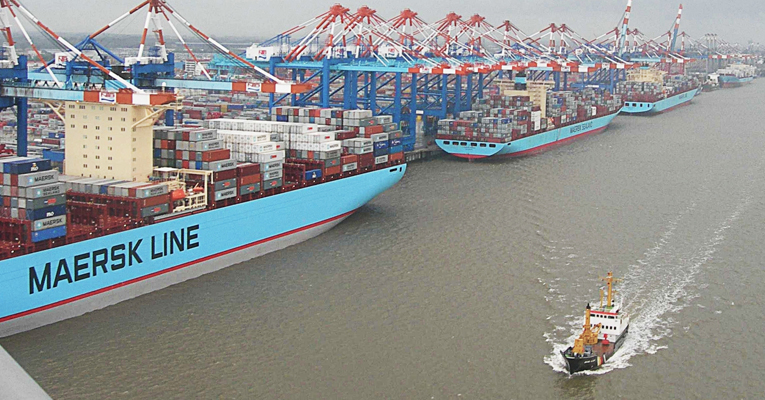UK’s EXIM trade volume with India flourishes in H1 2016: Maersk Line

Nov 04, 2016: As per Maersk Line, the world’s largest container shipping company, India maintained its strong trading position with the United Kingdom (UK) registering a 6 percent year on year growth in EXIM container trade volumes for the first half of 2016. This is despite a 2 percent decline in the UK’s EXIM container trade volumes with the rest of the world during the same period.
The full year container trade volume growth forecast for 2016 is expected to slightly lower at 4-5 percent, but better than the 3 percent growth witnessed in 2015. In terms of overall trade, India ranks 3rd on EXIM trade volumes with the UK with a share of 6 percent behind China (38 percent) and USA (8 percent).
In terms of exports, India’s top containerised commodity categories of garments, stones and tiles, kitchenware and appliances, and metal; all registered stronger growth this year as against the last.
“Mundra emerged as the No. 1 port in terms of export volume traffic to the UK on the back of revival in demand for stones in the UK and the proximity of these markets to Mundra, its increased competitiveness and the improved rail connectivity to it from North India,” said Franck Dedenis, Managing Director – India, Sri Lanka & Bangladesh Cluster, Maersk Line.
In terms of imports, amongst the top containerised commodity categories, metal, iron and steel scrap saw volume growth year on year, while paper, plastic and rubber continued to see negative volume growth.
“The latest IMF forecast puts UK’s GDP growth estimates in 2017 at 1.1 percent, half of what it was prior to Brexit. In contrast, World Bank estimates India’s GDP growth will remain strong at 7.7 percent in 2017, supported by expectations of a rebound in agriculture, increase in internal consumption, increasingly positive contributions from exports and a recovery of private investment in the medium term. This could potentially create an imbalance in EXIM trade between the two countries, in favour of imports from the UK into India,” said Franck Dedenis, Managing Director – India, Sri Lanka & Bangladesh Cluster, Maersk Line.
“To ensure this doesn’t happen, India needs to continue to improve its cost competitiveness and a key area is the indirect and hidden costs of trade accruing from delays and unreliable transportation services, that amount to as much as 38-47 percent of total transport and logistics costs. Reducing indirect costs of trade by 10 percent has the potential to generate additional exports of up to 5-8 percent,” he added.




